UNICEF aid worker Tess Ingram tells of plight of Beirut’s kids
Aussie aid worker Tess Ingram tells of the heartbreaking reality for Beirut’s children including one little girl who has nothing but a T-shirt and a teddy bear to her name since she fled for her life.
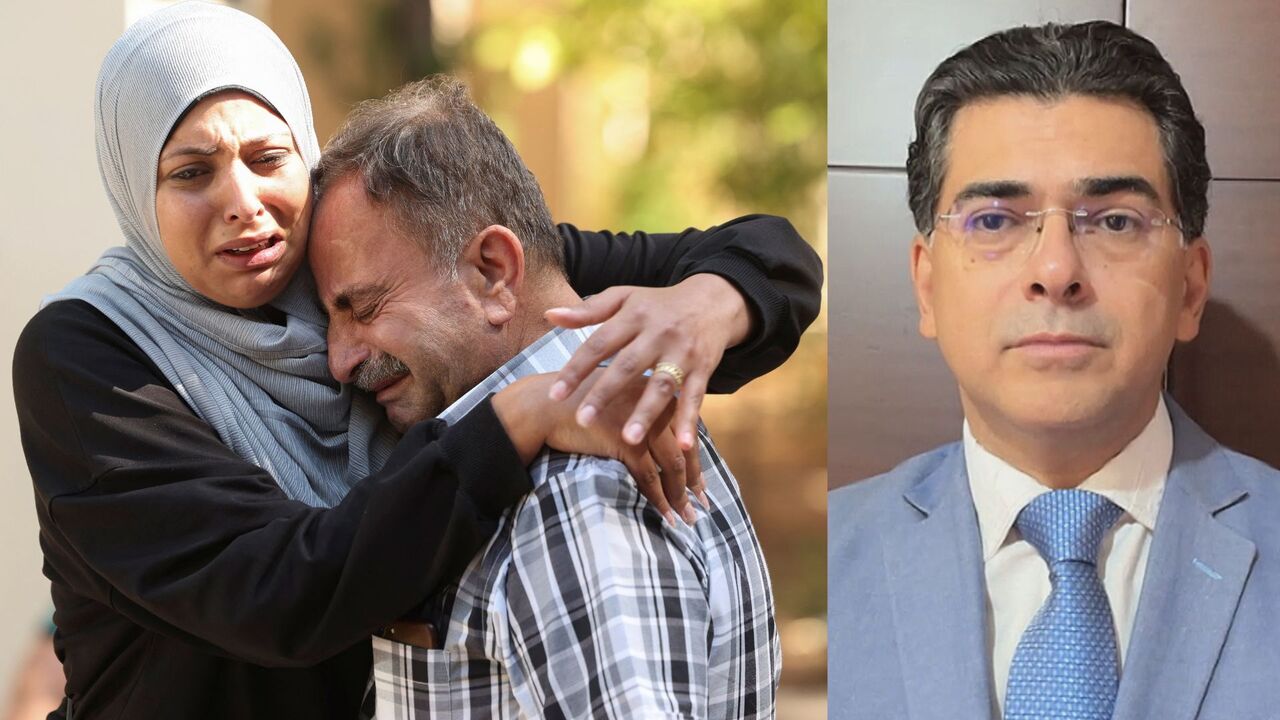
World
Don't miss out on the headlines from World. Followed categories will be added to My News.
An Australian aid worker in Beirut has made an emotional appeal on behalf of the children of the Lebanese capital who are the innocent victims in a spiralling humanitarian crisis.
Former Perth journalist Tess Ingram’s days are spent listening to frantic mothers and terrified children who have been forced out of their homes by the conflict between Israel and Hezbollah.
Here in her own words, UNICEF’s Middle East spokeswoman relays the catastrophe playing out before her eyes.
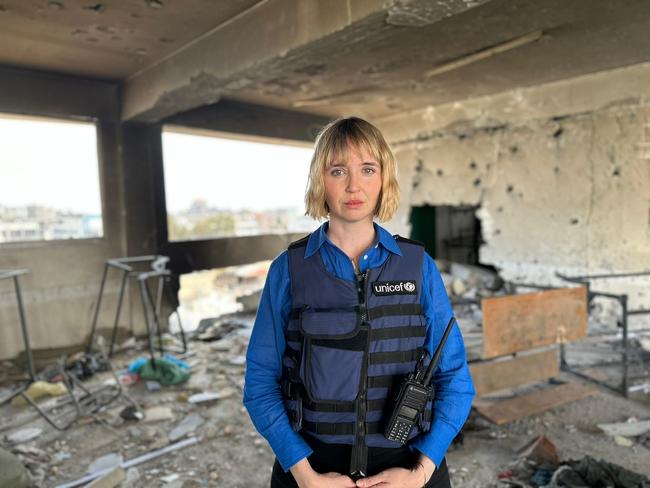
‘SHE BEGGED HER PARENTS TO LEAVE’: HARROWING STORIES OF BEIRUT KIDS
I’ve just come from spending the afternoon visiting a hospital and driving around the streets of Beirut and it’s fair to say everywhere I look there is some impact from this conflict.
The displacement crisis is just so evident with one million people displaced across Lebanon including an estimated 300,000 children.
Families in shelters told me they left with what they were wearing – some were lucky enough to be able to bring one change of clothes.
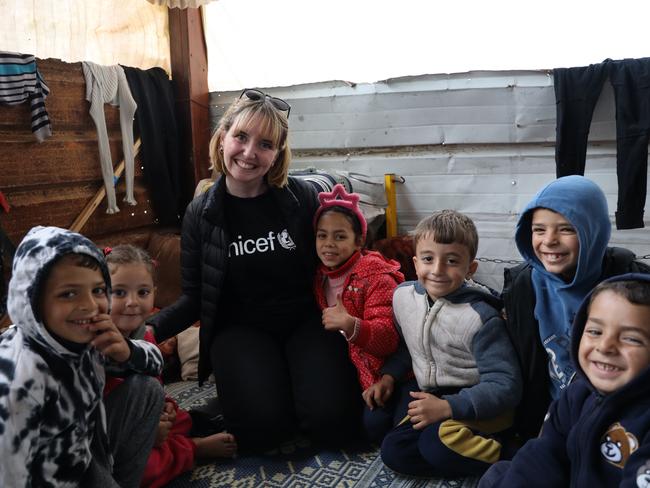
These families are evacuating at 2am, 3am in the morning, grabbing their children and piling them in a car, fleeing for their safety.
Others spoke to me about trying to remain at their homes in southern Lebanon for as long as they could.
But as one teenage girl told me, she was me finding that too frightening and so she begged her parents to leave.
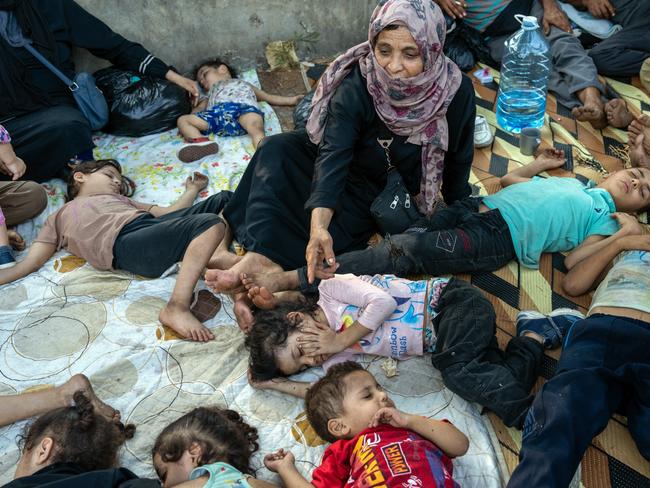
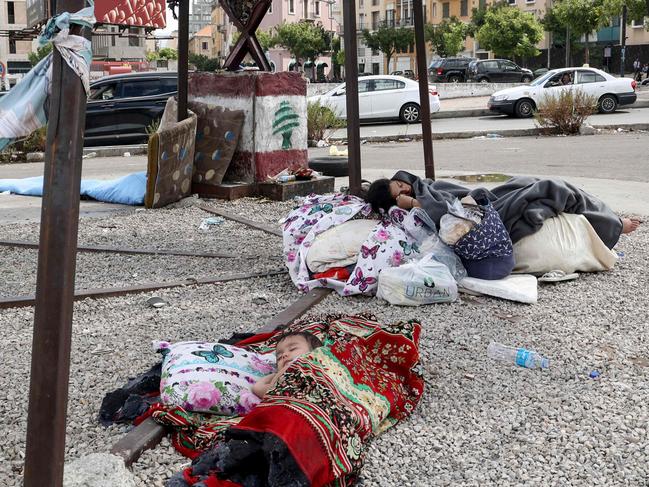
Now she’s in a shelter she feels safer, but all they are wanting is to go back home.
A little 10-year-old girl told me the only things she could fit in her backpack before she fled were a few T-shirts and her teddy.
It really is touching so many aspects of their lives. From the killing and injuring of children to displacing people from their homes, to shutting schools (schools was supposed to go back this week but it hasn’t), to the enormous mental health impact.
We have reached more than 50,000 people in more than 200 shelters in the last week.

We provide them with everything from drinking water to sleeping bags, hygiene supplies like soap and shampoo and personal hygiene items for women adolescent girls.
We provide them with healthcare too – including psychosocial sessions.
I think hearing these stories from the people of Beirut is an important reminder of how this conflict has a disproportional impact on families.
When we talk about an air strike, for them that’s their home, their reality, their car that they are piling their children into to flee.
That’s often lost when we talk about statistics.
The children are impacted by this day in and day out and there are potential impacts of this that will occur for years to come – impacts on their education, health and mental health.
As a humanitarian you want to do as much as you can for as many people as you can, but ultimately you know that's not possible.
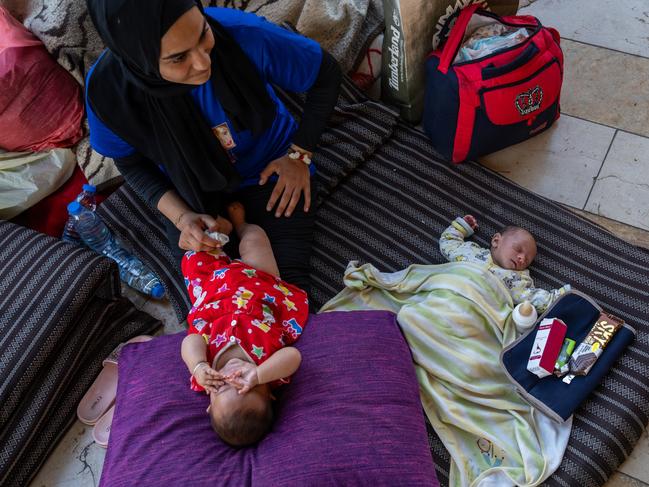
You can have best prepared humanitarian response and then of course the needs will start escalating far greater than you could imagine like we’ve seen here.
We had supplies pre-positioned but we need to get more in urgently.
Knowing we can’t help everyone right now doesn’t mean we stop. We put out an appeal for more funds, we put out our advocacy requests for roads to remain open.
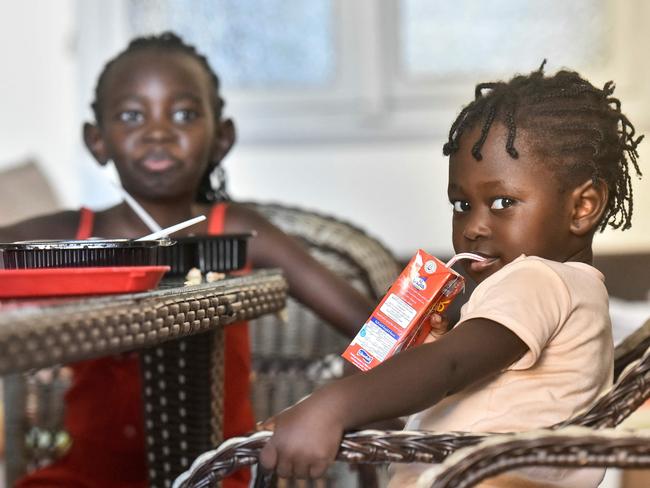
We’ve been in Lebanon for 75 years and what motivates us to do what we do is the children.
I think it’s important to consider yourself in this situation when you are at home tonight in your bed or getting ready to go to work or school the next morning.
Imagine if all of a sudden there was an air strike on your street you had to grab your children and run?
That’s been the reality for people in Lebanon this week and it’s been the reality in Gaza for almost a year.
Something that will always stay in my mind is a mum showing me a photo of her living room.
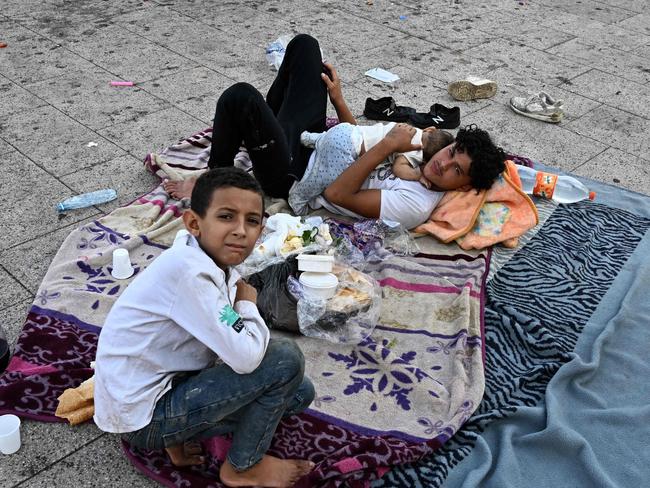
There was a dog on a rug and they were all sitting around together watching TV.
It looked like just like an Aussie living room – it could have been straight out of Sydney.
But that family had to flee and now they’re living in a site for displaced people under a piece of plastic.
Because people are filling shelters so quickly, if numbers continue to rise, it’s unclear if we can find enough accommodation for the numbers of displaced people.
We need funding for basic essentials so people can survive and we are calling on the world to find diplomatic solutions to end this so that family can go back to their living room with their children and with that dog.
Donate to UNICEF Australia’s Children of Lebanon Crisis emergency appeal HERE.





